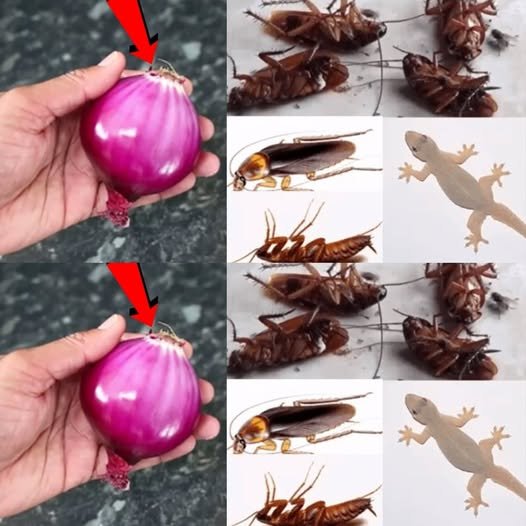Mosquitoes are not only a nuisance but also carriers of various diseases. While chemical repellents are available, many people are turning to natural solutions to keep these pests at bay. One effective method is using specific plants known for their mosquito-repelling properties. These plants release natural oils and fragrances that mosquitoes find unpleasant, making them an excellent addition to any backyard.
Understanding Mosquito Behavior and Attraction
Mosquitoes are attracted to humans and animals by the carbon dioxide we exhale, body heat, and certain body odors. They are most active during dawn and dusk and are drawn to standing water where they breed. Understanding these behaviors can help in strategically placing mosquito-repelling plants to disrupt their attraction and breeding cycles.
The Benefits of Using Plants to Deter Mosquitoes
Using plants to deter mosquitoes offers several benefits. They provide a natural and eco-friendly way to reduce mosquito populations without harmful chemicals. Additionally, many of these plants are multipurpose, offering culinary, medicinal, or aesthetic benefits. They can enhance the beauty of your backyard while creating a more pleasant outdoor environment.
How to Choose the Right Plants for Your Backyard
When selecting mosquito-repelling plants, consider your local climate, the amount of sunlight your backyard receives, and the plant’s maintenance requirements. Some plants thrive in full sun, while others prefer shade. It’s also important to consider the plant’s growth habits and how they will fit into your existing landscape design.
Top 12 Mosquito-Repelling Plants and Their Benefits
Here are the top 12 plants known for their mosquito-repelling properties. Each plant offers unique benefits, from aromatic oils to beautiful blooms, making them valuable additions to any backyard.
1. Citronella Grass: The Natural Mosquito Repellent
Citronella grass is renowned for its mosquito-repelling properties, thanks to the citronella oil it contains. This tall grass is easy to grow in warm climates and can be planted in pots or directly in the ground. Its strong lemony scent masks the odors that attract mosquitoes, making it an effective natural repellent.
2. Lavender: A Fragrant Barrier Against Mosquitoes
Lavender is not only known for its calming fragrance but also for its ability to repel mosquitoes. The essential oils in lavender plants are offensive to mosquitoes, making them an excellent choice for borders and walkways. Plus, lavender attracts pollinators like bees and butterflies, enhancing your garden’s biodiversity.
3. Marigolds: Bright Blooms with Pest-Repelling Properties
Marigolds contain pyrethrum, a compound used in many insect repellents. Their bright, cheerful blooms can deter mosquitoes and other garden pests. Plant marigolds in sunny areas around your patio or garden to take advantage of their natural pest-repelling abilities.
4. Basil: Culinary Herb with Mosquito-Repelling Oils
Basil is a versatile herb that not only enhances your culinary dishes but also repels mosquitoes. The aromatic oils in basil are unpleasant to mosquitoes, making it a practical choice for kitchen gardens and outdoor dining areas.
5. Catnip: More Than Just a Feline Favorite
Catnip contains nepetalactone, a compound that is highly effective at repelling mosquitoes. Studies have shown that catnip can be more effective than DEET, a common chemical repellent. Plant catnip in pots to control its spread and enjoy a mosquito-free zone.
6. Rosemary: Aromatic Herb with Dual Benefits
Rosemary is a hardy herb that thrives in sunny, dry conditions. Its woody scent is known to repel mosquitoes, and it can also be used in cooking. Plant rosemary near seating areas or use it as a border plant to keep mosquitoes at bay.
7. Mint: Refreshing Scent That Mosquitoes Hate
Mint is a vigorous grower with a refreshing scent that mosquitoes dislike. Plant mint in containers to prevent it from overtaking your garden. Its leaves can also be used to make refreshing teas or as garnishes in culinary dishes.
8. Lemon Balm: Citrus Aroma That Keeps Pests Away
Lemon balm is a member of the mint family and emits a strong lemon scent that mosquitoes find repulsive. It is easy to grow and can be used in teas and salads. Plant lemon balm in pots or garden beds to enjoy its mosquito-repelling benefits.
9. Sage: A Versatile Herb with Mosquito-Repelling Qualities
Sage is a versatile herb with a strong aroma that deters mosquitoes. Burning sage leaves in a fire pit or barbecue can create a smoke barrier that keeps mosquitoes away. Sage is also a culinary herb, adding flavor to various dishes.
10. Geraniums: Beautiful Blooms with Protective Properties
Geraniums, particularly those with a lemon scent, are effective at repelling mosquitoes. Their vibrant flowers add color to any garden, and their scent can help keep mosquitoes at a distance. Plant geraniums in pots or garden beds for best results.
11. Eucalyptus: Tall Trees with Potent Oils
Eucalyptus trees are known for their potent oils that repel mosquitoes. While they are large trees, dwarf varieties can be grown in pots. The leaves can be crushed to release their oils, providing a natural mosquito deterrent.
12. Bee Balm: Attract Pollinators, Repel Mosquitoes
Bee balm attracts pollinators like bees and butterflies while repelling mosquitoes. Its vibrant flowers and minty scent make it a beautiful and functional addition to any garden. Plant bee balm in sunny areas to enjoy its full benefits.
Planting Tips for a Mosquito-Free Backyard
To maximize the mosquito-repelling effects of these plants, strategically place them around seating areas, walkways, and entry points to your home. Ensure proper spacing for air circulation and consider companion planting to enhance their effectiveness. Regular maintenance, such as pruning and deadheading, will keep the plants healthy and productive.
Safety Considerations for Pets and Mosquito-Repelling Plants
While many mosquito-repelling plants are safe for pets, some, like eucalyptus and certain types of mint, can be toxic if ingested in large quantities. Always research each plant’s safety profile and consider planting them in areas inaccessible to pets. Consult with a veterinarian if you have concerns about specific plants.
Conclusion: Enjoying a Mosquito-Free Outdoor Space
By incorporating these mosquito-repelling plants into your backyard, you can create a more enjoyable and pest-free outdoor environment. Not only will you reduce the mosquito population, but you’ll also enhance the beauty and functionality of your garden. Embrace the power of nature and enjoy your outdoor space without the constant nuisance of mosquitoes.



